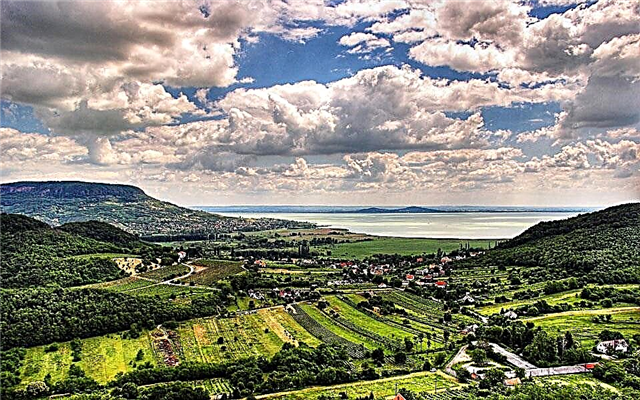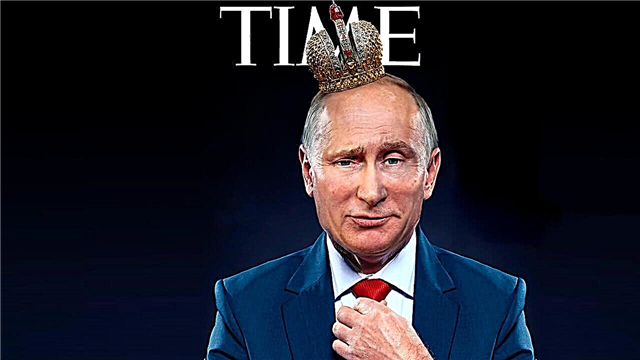Size has always been of particular importance to people. Even when it comes to such things as, for example, the length of a word.
Our rating of the longest words in Russian It can be useful and interesting for both adults and schoolchildren who want to impress teachers with their erudition.
Who loves words more genuine
The everyday words that we use every day are relatively short. Their length rarely exceeds five letters. In literary Russian speech, namely in literary works, words are already a little larger - up to six letters.
Newspapers and news website editors love long and official words. The average word length in a news article is already seven letters.
But most of all, long words are loved by professionals who write dissertations, publish in scientific journals and compose textbooks. The word of seven letters in scientific and business literature is ordinary, most of them number from 8 or more.
The longest Russian words that are used more often than others
- According to the dictionaries of the Russian language, among the long words, the adjective "private entrepreneurial"- 25 letters.
- Among verbs, borrowings from the English language are often found, overgrown with Russian affixes. For example, "substantialize"And"to internationalize". And in that, and in another word for 24 letters.
- But nouns are more likely from the field of fiction of the XIX century. For example, "excellence"(Also 24 letters).
- But even interjections (“akhi” and “okhi”) can grow up - the longest of the words in this category has 14 letters, not counting a hyphen: “gym hi».
Ways You Can Create The Longest Words In The World In Russian
 New words in Russian are most often formed in a morphological way. That is, from a combination of morphemes (the smallest unit of word formation, each of which carries its own semantic connotation), a new meaning is born.
New words in Russian are most often formed in a morphological way. That is, from a combination of morphemes (the smallest unit of word formation, each of which carries its own semantic connotation), a new meaning is born.
For example, “litvin” = “Lithuania” + “-in”, where the last morpheme (aka suffix) indicates territorial affiliation, place of residence.
Long words are usually not built on this principle (there is not enough material). However, it is possible to break all records by using the prefix "great-". The amount of its use in Russian is unlimited and often creates a comic effect, which is what people like to use in books. What do you need to do first, returning to the current number of years ago and meeting your own ancestor? Of course, calculate the degree of kinship to the last knee! And so they come into the light "prapraprapraprapra- ... grandfathers"Theoretically stretched for one hundred or more letters.
Net addition
One of the record holders for this method of word formation is considered the languages of the German group. In them, the foundations of words, as if with a magnet, are attracted to each other, stick together in serpentine formations, and they do not even need affixes.
Of course, until praised in one of Mark Twain’s short stories “schratterrottelhottentotenmouth terattentater"The Russian language is far away. Polybasic words in it are relatively rare and are perceived rather as a deviation from the norm. Most of them are born in professional fields, mainly in chemistry.
- It is there that multi-letter giants are born, like "methoxychlorodiethylaminomethylbutylaminoacridine". As many as 44 letters, and all pure bases, not a single connecting vowel or affix!
- It is not surprising that chemical scientists prefer to use another, much shorter name for this substance - “Akrikhin”.
- And in chemical science there is also "tetrahydropyranylcyclopentyltetrahydropyridopyridine"(51 letters),"hydrazinocarbonylmethyl bromophenyl dihydrobenzodiazepine"(50 letters) and so on.
- But the longest "chemical" word breaks all possible world records. This is the longest known protein in science and its name is corresponding. It has the largest number of letters - 189,819. Yes, yes, this is not a typo. Those who wish can even try to read it on their own by typing “titin” in the search engine.

Interfix basics
Interfix is the scientific name for the connecting letter "o" or "e", which is studied at school. Thanks to the interfix between the foundations for harmony, a vowel appears, making monsters like “water-mud and paraffin treatment"(29 letters) more convenient for pronunciation.
Affix Addition
And if you add a suffix or prefix to the base and sprinkle other roots with a generous hand, even the simple word “watch” can grow to unprecedented values. For example, "supervisory": Two prefixes, several suffixes, three roots - and the result stretched as much as 35 letters. By the way, this word was included in the Guinness Book of Records of the 2003 version.
Among the long words formed in the affix way adjectives are in the lead. But even against their background, derivatives of numerals stand out, for example, “eighty-four"(25 letters) and came from military vocabulary"four hundred and fifty-seven millimeters"(37 letters) tool.
In the same way, one can form adjectives from any other arbitrarily chosen numeral. So the answer to the question: "What is the longest word in Russian?" in this case only the reader’s imagination can give.
Abbreviation
Among the longest Russian words there may be an abbreviation, the longest of which has 56 letters. This is a research laboratory for concrete reinforcement operations and reinforced concrete works for the construction of precast and monolithic and monolithic structures of the construction and assembly department technology department of the USSR Academy of Construction and Architecture. If “briefly”, then it sounds like NIIOMTPPLABOPARMBETZHELBETRABSBORMONIMONKONOTDTEHSTROMONT (56 letters).
However, the Russian language is not ahead of the rest in terms of average word length, but occupies an intermediate position between Chinese and agglutinative languages, for example, Quechua. In them, new words are formed by simple coalescence of morphemes and theoretically can reach unprecedented lengths.
For example, the largest word in this type of language (Hungarian) is 119 letters. It is impossible to translate it into Russian in one word, it will take a whole sentence: “Regarding your research on the modernization of the manifestations of neurosis syndrome and the need to decide which exactly the longest and most complex word can set a world record”.












